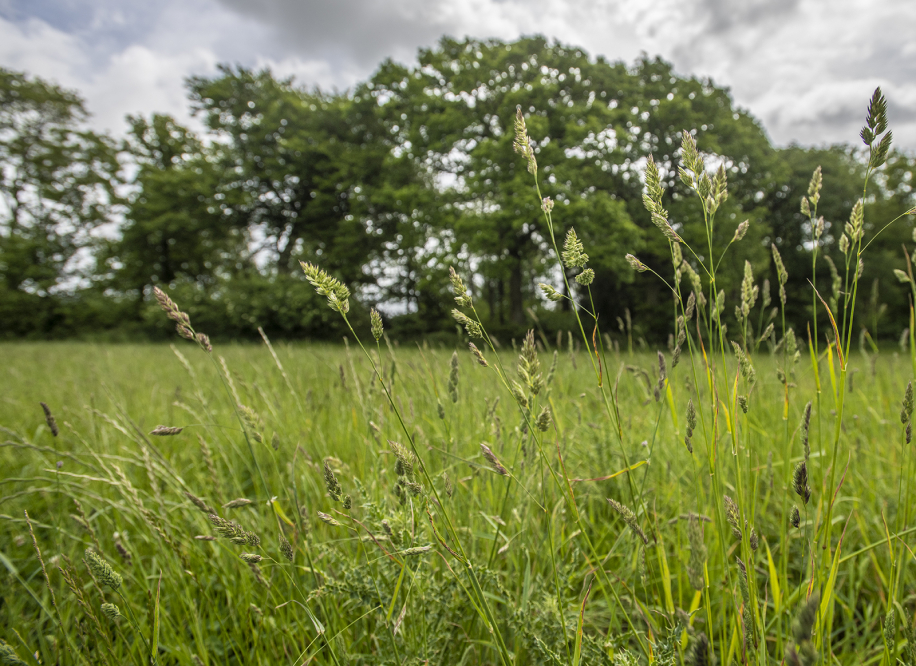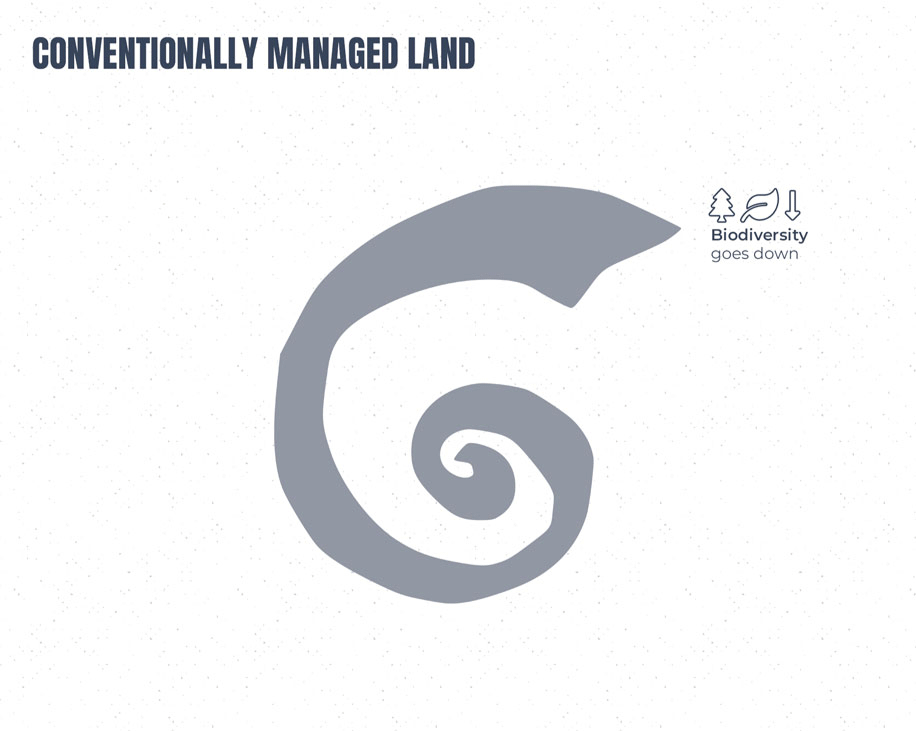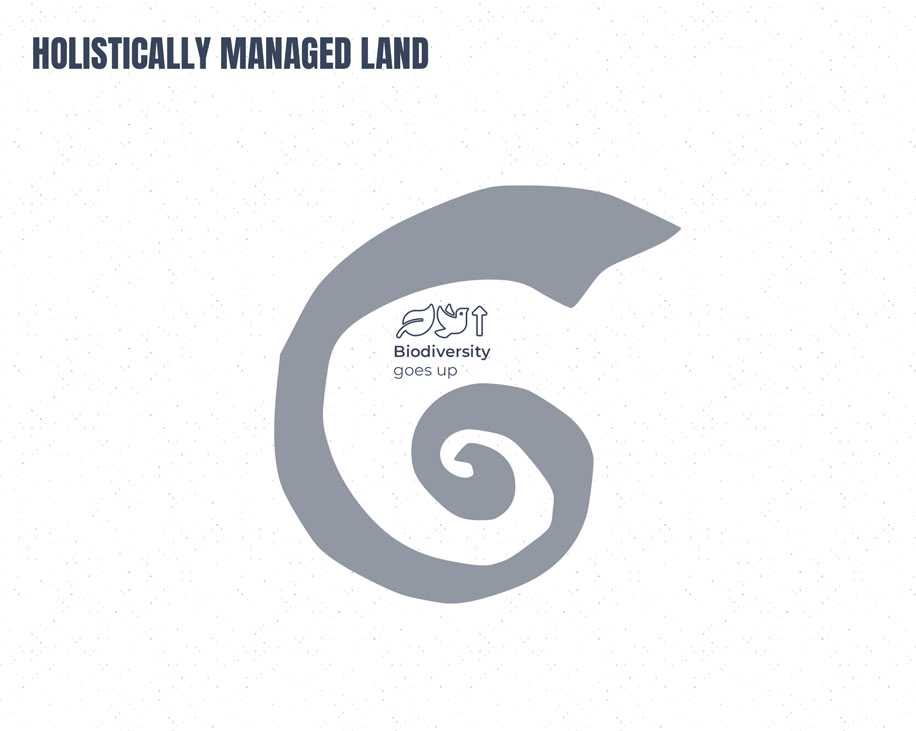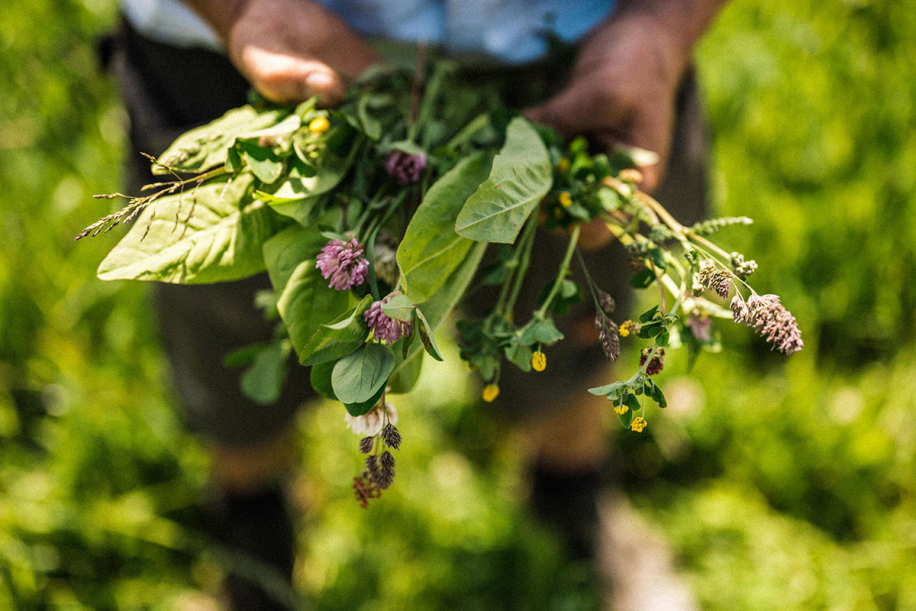The Case for Biodiversity
Encouraging nature back to spark positive changes that benefit soil, plants, animals, humans and even climate…
Regenerative agriculture can’t happen without biodiversity. Functioning natural ecosystems need a rich variety of organisms and micro-organisms working symbiotically to share and process energy in a circular way.
Monoculture – intensive farming that aims at high yields of a single crop at the lowest cost possible – threatens biodiversity. In doing so, it impoverishes the soil and endangers itself.
Without the interwoven relationships of a biodiverse system, and the built-in resilience these relationships create, fertile growth is tied to the use of external pesticides and herbicides. As climate change alters our natural systems, land that’s designed for monocultures is highly vulnerable to new pests and diseases.

AN UPWARD SPIRAL
Everything is interlinked. The diversity of life above ground directly impacts the health of the soil below, and vice versa. As the monocultural farming methods of the last century have degraded soil health, we can trace a downward spiral of cause and effect:

- Biodiversity goes down
- Plant cover decreases
- Reduction in photosynthesis
- Reduction in carbon uptake and manufacture of oxygen
- Reduction in the accumulation of organic matter in the soil
- Disruption of nutrient cycling
- Fertility goes down
- Reduction of infiltration and retention of rainfall in the soil
- Changes in soil moisture
- Changes in relative humidity
- We see changes in the weather
- We see changes in the climate
But, by the same logic and with thoughtful land management, we can climb the spiral back up. It’s the thinking behind the Kingsclere logo, and at the heart of the way we’re working.

- Biodiversity goes up
- Plant cover increases
- Increase in photosynthesis
- Increase in carbon uptake and manufacture of oxygen
- Increase in the accumulation of organic matter in the soil
- Restoration of nutrient cycling
- Fertility goes up
- Increase in infiltration and retention of rainfall
- Positive changes in soil moisture
- Positive changes in relative humidity
- We see positive changes in weather
- We see positive changes in climate.
PLANTING THE DIFFERENCE
At Kingsclere, half our farm is planted with multispecies herbal leys: a diverse seed mixture of legumes, grasses and herbs. By rotating our leys with our crops and our livestock, and timing the rotations to let the plants grow, flower and put down roots, we keep our soil varied and nutrient-dense.

We believe that a farm can thrive to the mutual benefit of its native wild species, and see ourselves as stewards of our patch of countryside. Working with the Hampshire and Isle of Wight Wildlife Trust, we’ve been able to see how our herbal leys have led to an increase in the number of species on our land, even as we’ve reduced fertiliser and feed costs.
+
